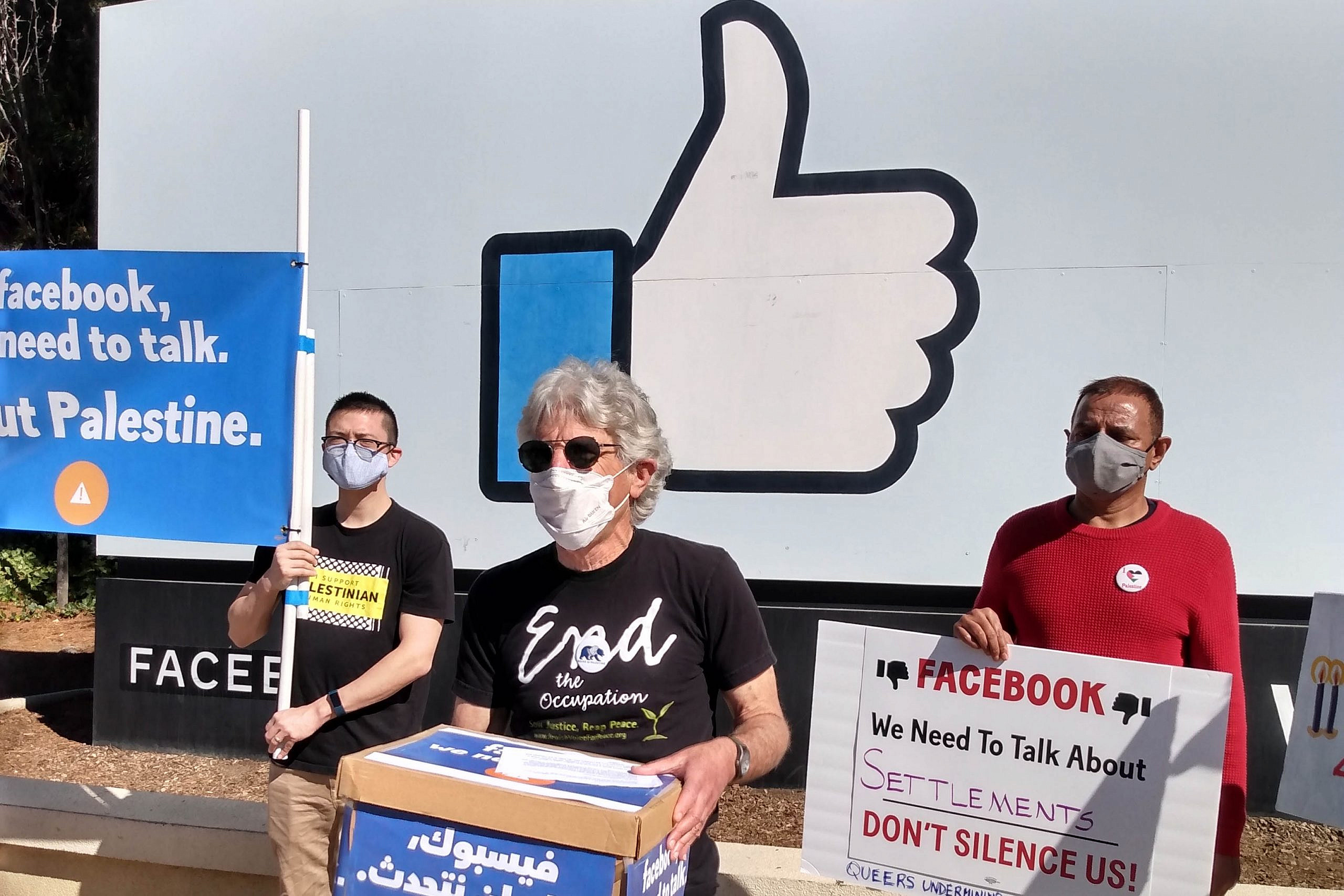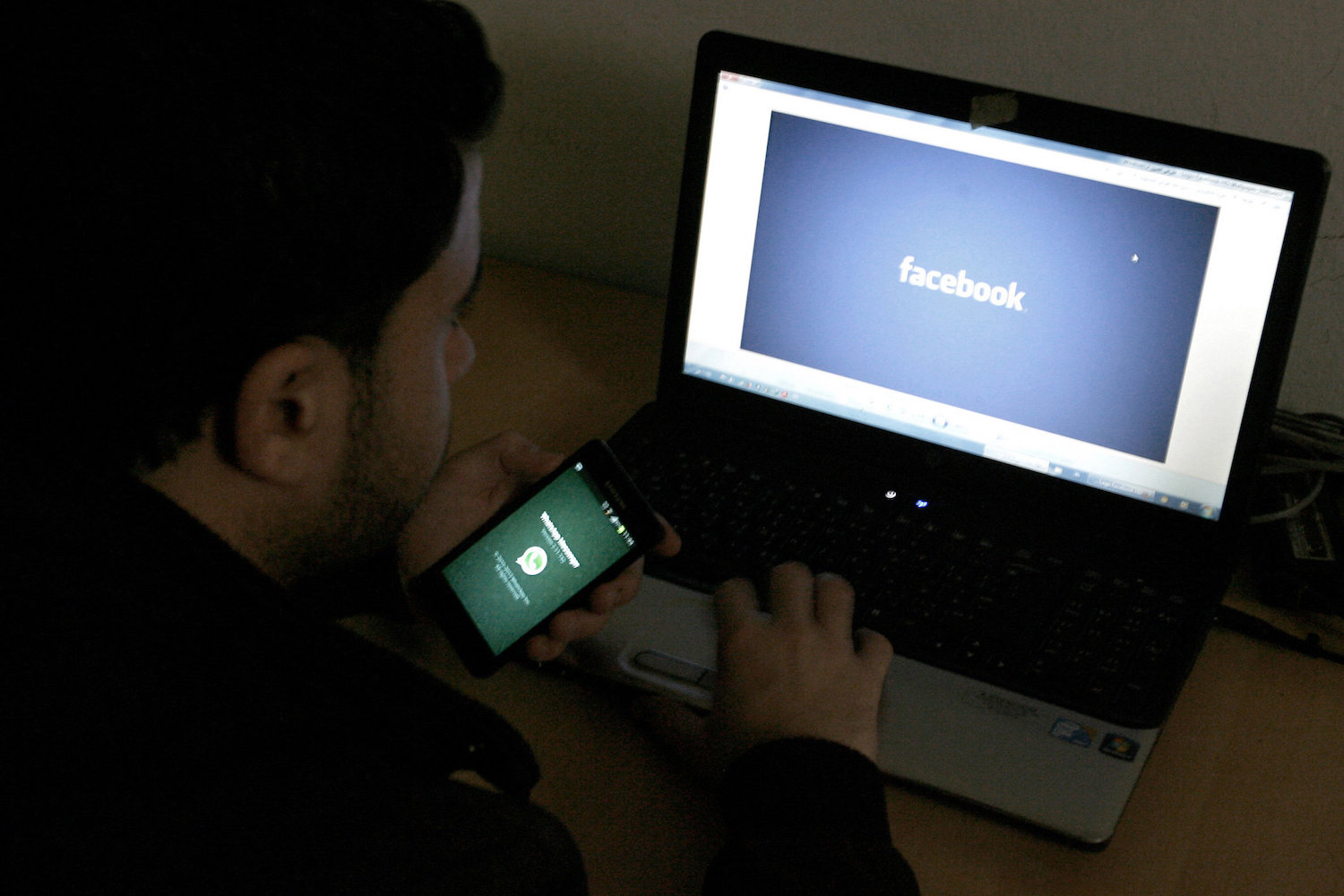Under a potential new Facebook policy, if a user posted an image of an Israeli soldier choking a Palestinian child, and another user responded by calling the soldier a “filthy Zionist,” both the image and comment would be deleted. That example, and the ensuing enforcement policy, was recently presented by Facebook officials during a meeting with Palestinian rights advocates, according to a source knowledgable about the meeting.
Facebook, one of the largest social media companies in the world, is considering a content moderation policy that Palestinian rights advocates worry would silence criticism of Israel by conflating anti-Zionism with antisemitism. A source with knowledge of Facebook’s discussion told +972 they believe Facebook will make a decision on this imminently.
The discussions within Facebook about the potential move are the latest front in an escalating battle over the re-definition of antisemitism, and comes amidst a campaign by Israel’s government and its allies abroad to conflate antisemitism with critiques of Israel. According to sources knowledgeable about Facebook’s discussions on the matter, Jordana Cutler, a former advisor to Prime Minister Benjamin Netanyahu and the current head of policy for Israel and the Jewish diaspora, is a key figure involved in the company’s upcoming decision.
“The policy Facebook is considering would be yet another tool to silence Palestinians and their allies who are trying to tell the world about the impacts of Zionism on their daily lives,” said Liz Jackson, a senior staff attorney at Palestine Legal, a group that advocates for Palestinian rights activists’ free speech and civil liberties.
“Every year Palestine Legal hears from hundreds of people in the U.S. — Palestinians and their allies — who are censored, punished, and harassed for speaking out for Palestinian freedom,” Jackson continued. “The vast majority are accused of antisemitism because they criticized the political positions of Zionists, in defense of Palestinian lives. Facebook must resist this censorship, not reinforce it.”
Antisemitic content has long flourished on Facebook. Holocaust denial is rampant, and white supremacist organizations openly organize on the platform. In October, following an anti-hate boycott campaign by advertisers, Facebook announced that it would ban Holocaust denial on its pages, though The Markup found that such content was still present after the decision was made.
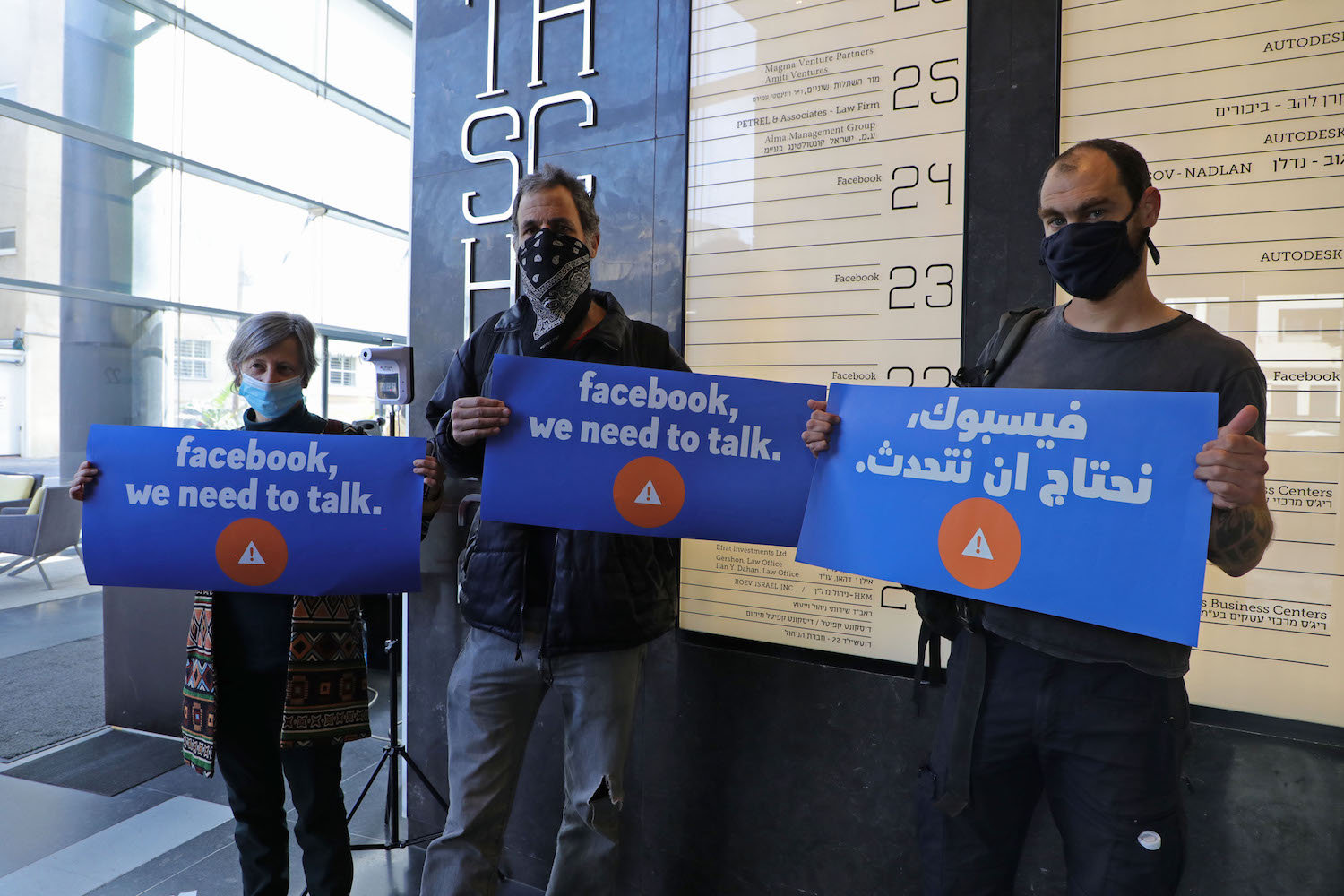
But while Palestinian rights groups focus their criticism on Israel, and not on Jews as a group, Israel advocacy organizations have pressured the company Facebook to adopt policies that would clamp down on pro-Palestinian content in the name of fighting anti-Jewish bigotry.
Pressure to adopt IHRA
In August 2020, 120 Jewish groups sent a letter to Facebook demanding the company revise its methods of fighting antisemitism on the platform. Specifically, the groups advocated that Facebook adopt the International Holocaust Remembrance Alliance (IHRA) definition of antisemitism “as a cornerstone of Facebook’s hate speech policy” on anti-Jewish bigotry.
The groups behind the letter are among the most prominent Israel advocacy organizations in the United States and around the world, some with links to the Israeli government. They include ACT.IL, a smartphone app developed by former Israeli intelligence officers that has been highlighted by the Israeli government as a tool to “defend Israel;” the International Legal Forum, a group that has received money from the Israeli government to combat the Boycott, Divestment and Sanctions movement; and Hasbara Fellowships, an organization which trains college students to advocate for Israel, and was started by Orthodox Jewish group Aish HaTorah alongside Israel’s Foreign Affairs Ministry, accepting nearly $2 million in cash from Israel’s Strategic Affairs Ministry between 2016 and 2019.
Then, in November last year, a Facebook employee sent an email to an undisclosed external consultant that was published by tech news site The Verge. In the email, the employee wrote that the company was “looking at the question of how we should interpret attacks on ‘Zionists,’” in order to determine “whether the term is a proxy for attacking Jewish or Israeli people.”
Apart from telling The Verge that they allow the word “Zionist” on their platform when used in political discussions but remove it when “used as a proxy for Jews or Israelis in a dehumanizing or violent way,” Facebook has said nothing publicly about their potential new policy, highlighting how the social media giant’s lack of transparency. Facebook did not respond to a request for comment from +972 Magazine for this story.
‘Censorship is already the baseline with Facebook’
Palestinian rights advocates worry that, under the new policy, Facebook content moderators will crack down on Palestinians who use the word “Zionist” or “Zionism” to describe oppressive practices they experience living under Israeli military occupation.
“The main people who will be affected by this decision will be Palestinians, as it will prevent them from being a big part of the political discourse taking place on Facebook,” said Nadim Nashif, executive director and co-founder of 7amleh: The Arab Center for Social Media Advancement. “Zionism is an ideological-political movement, and like any other movement, it’s legitimate to criticize it.”
Since learning of Facebook’s intention to revise its hate speech policy, Palestinian rights advocates, led by Jewish Voice for Peace, launched an online campaign to pressure Facebook not to crack down on the use of the word “Zionist.” Prominent figures including actor Wallace Shawn, academics Cornel West, Judith Butler, and Noam Chomsky, as well as former Palestine Liberation Organization official Hanan Ashrawi, signed on to a petition as part of the campaign.
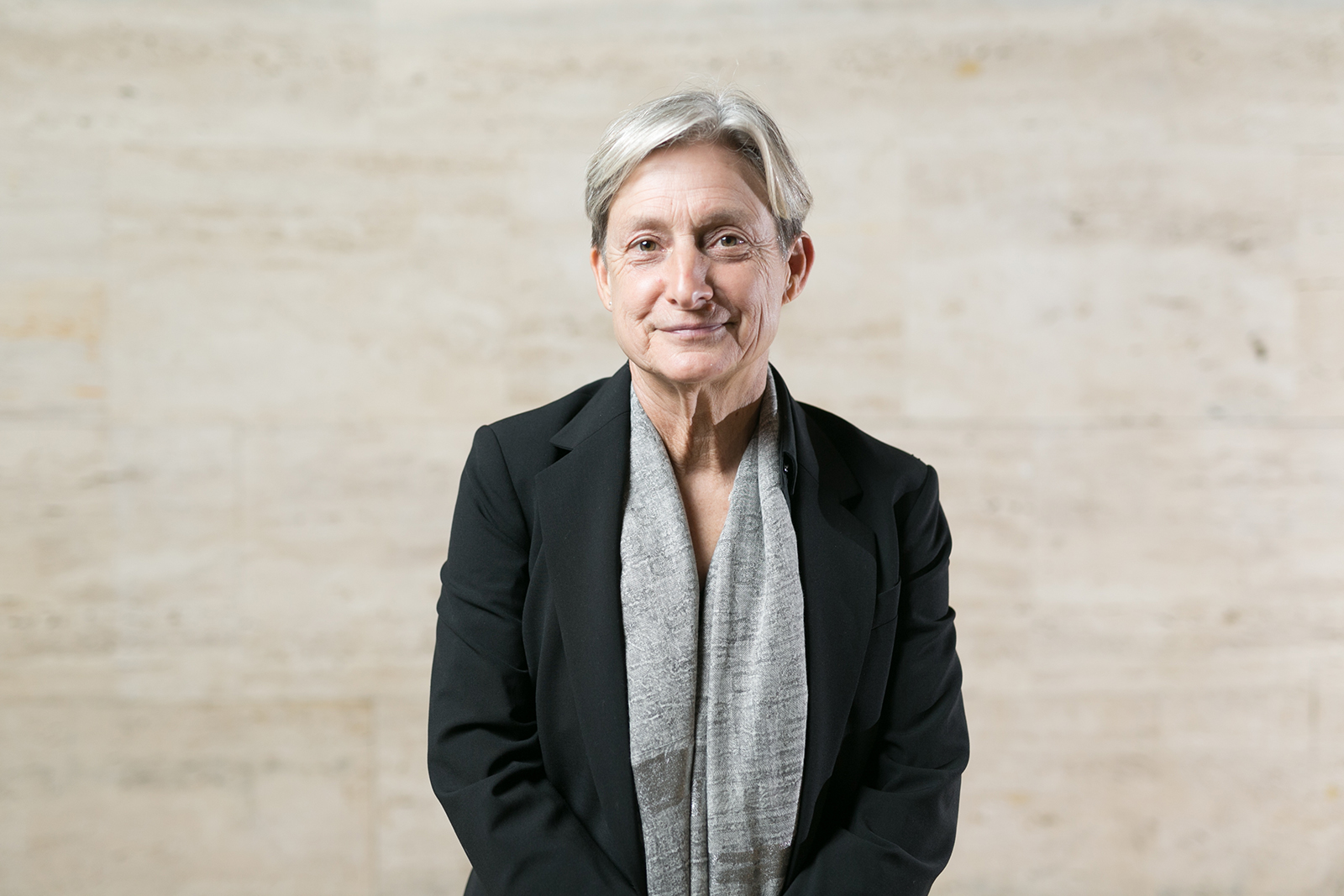
For some Palestine advocates, Facebook’s adoption of this new policy would solidify, and potentially worsen, existing content moderation practices that have already suppressed Palestinian speech on the platform. For example, Facebook has repeatedly disabled the pages of Palestinian journalists and activists, while last year, it temporarily blocked a page for a Jewish Voice for Peace event called “Wrestling with Zionism.”
“For Palestinians and their allies, overwhelming censorship is already the baseline with Facebook,” said Palestine Legal’s Jackson. “We regularly receive calls for help from people who were suspended, shadow-banned, blocked from sharing events, or blocked from boosting content. These users often have no explanation, or they are accused of violating community standards for engaging in political debate about Zionism as an ideology, or commentary about facts on the ground in Palestine. Facebook’s proposed policy change would obviously further inflame what is already systematic censorship.”
Not mere paranoia
The Israeli government and Zionist organizations have promoted the IHRA definition of antisemitism since its release in 2016. Its list of examples of antisemitism include not only classic anti-Jewish tropes, but also some criticism against Israel, such as “claiming that the existence of a State of Israel is a racist endeavor” and holding Israel to a “double standard” — a particularly dubious provision for Palestinians given that Israel is the primary state systematically violating their human rights.
Kenneth Stern, the lead drafter of the definition, explained that he wrote it to assist in data collection of antisemitic incidents in Europe, but has since criticized attempts to “weaponize” the definition as a repressive speech code.
Israel now wants Facebook to embrace the IHRA definition in full in order to police content on the website. A policy paper authored by the Israeli government in February 2021 lists this adoption of the IHRA definition “in social media community rules” as a policy objective.
In response to questions from +972 about their involvement in Facebook’s deliberations on content moderation, the Ministry for Strategic Affairs said: “We are not behind the discussions with Facebook on this issue, as opposed to the [Jewish] organizations that operate independently and do as they see fit. As far as we know, Facebook did not contact us. We are promoting a national plan for implementing the IHRA definition. We do not deal with definitions of Zionism, but we do deal with the part of the IHRA definition that establishes that denial of the Jewish people’s right to self-determination is a form of antisemitism.”
Michael Biton, the Strategic Affairs Minister, confirmed to +972 that social media networks, including Facebook, are sympathetic and open to the government on this issue.
Speaking at a State Department conference on antisemitism last year, Peter Stern, Facebook’s director of stakeholder engagement and content policy, said that the IHRA definition “is helpful to us because it flags important issues we are dealing with,” adding that “if you look at our policy and you look at IHRA definition, there is quite a bit of overlap.”
In a letter to right-wing Israeli-American philanthropist Adam Milstein shared on Twitter, Facebook COO Sheryl Sandberg wrote that the IHRA definition “has been invaluable,” and that in some cases the company’s Community Standards “go even further than the IHRA definition.”
Facebook, however, has not yet agreed to adopt the IHRA definition. Instead, the social media giant is focusing on whether to police the word “Zionist” specifically if used in reference to Jews or Israelis.
“There seems to have been a pivot from trying to get Facebook to adopt the IHRA, to Facebook looking at defining the word ‘Zionist’ — used in any critical sense — as indistinguishable from antisemitism,” said Lara Friedman, president of the Foundation for Middle East Peace [full disclosure: the foundation financially supports +972 Magazine].
“This may be based on a good faith concern, as there are certainly instances of antisemites using the terms ‘Jewish’ and ‘Zionist’ interchangeably,” Friedman continued. “But of course, the issue there isn’t the word but the context. Given the pressure around IHRA, it’s not paranoid to be concerned that this focus on the word ‘Zionist’ is just a back door to get the same impact that you would get if Facebook adopted IHRA in terms of stigmatizing and deplatforming criticism of Israel.”
‘I represent Israel in these meetings’
Additional criticism regarding Facebook’s policies on Zionism has centered around Facebook’s Public Policy Director for Israel and the Jewish diaspora, Jordana Cutler. Cutler was born in Washington, D.C. and immigrated to Israel in 2007 “with the goal of contributing to Israel’s development,” according to a Jerusalem Post profile of her. Before joining Facebook in 2016, Cutler served in senior positions in the Israeli Prime Minister’s Office and as chief of staff in the Israeli Embassy in Washington.
“My job of course here in Israel and with Jewish communities around the world is to explain Facebook policies and things Facebook is doing,” Cutler said in a video interview with the Jerusalem Post last November. “But on the other hand, inside the company, part of my job is to be a representative for the people here in Israel, voice of the government, for their concerns, inside our company.”
In a separate interview with the Jerusalem Post in September, Cutler said about her current role in Facebook: “I represent Israel in these meetings. It’s very important for me to ensure that Israel and the Jewish community in the Diaspora have a voice at these meetings.”
In 2020, advocacy groups launched a campaign criticizing Facebook for selecting Emi Palmor, the former general director of the Israeli Justice Ministry, to the Facebook Oversight Board, a third party created by the company to act as a “Supreme Court” for Facebook’s content moderation issues. According to a source, who requested to remain anonymous for fear of retribution from the Israeli government, Culter tried to “smear the groups in the campaign and to limit their access toFacebook.”
For Palestinian rights advocates, Cutler’s position within Facebook and her close ties to the Israeli government represent what’s wrong with the company’s policies regarding speech on Israel-Palestine. Facebook’s Israel office declined to make Cutler available for an interview with +972.
“It is clear that Facebook is prioritizing this content policy consideration because of the Israeli government and its advocates — including within Facebook’s own staff,” said Rabbi Alissa Wise, Deputy Director at JVP. “It’s telling that even within Jordana’s title, Facebook is betraying its alignment with Israel, and intentionally linking Jewish with Zionist. This content policy decision is an extension of what is clearly regular practice for Facebook — censoring Palestinian speech and making it harder to hold the Israeli government and Israeli army accountable for violating Palestinians human rights on their platforms.”
Censorship as a last resort
The debate over how to moderate Zionism on the platform highlights a larger philosophical question bedeviling Facebook: just what, exactly, is hate speech? Although there is no consensus on what constitutes hate speech or how to deal with it, Facebook has tried in some instances to delineate those parameters and determine who should be protected from such speech.
In 2017, for example, ProPublica obtained documents showing that Facebook considered “white men” to be a protected category, but not “Black children.” According to the documents, Facebook categorized hate speech as speech that targets people based on race, sexual orientation, religion, and more. Yet in the case of “Black children,” Facebook did not consider speech targeting that group as “hate” because, while “Black people” were a protected category, “children” are not. as such, Facebook’s moderation policies would only kick in if both categories were protected, as in the case of “white men.”
Palestinian rights advocates are also not the only group to criticize Facebook for political bias in its content moderation policy. In Myanmar, military officers have used Facebook to spread hateful rhetoric against Muslim Rohingyas, fueling killings and rapes that human rights group say amount to genocide. After receiving backlash for allowing its platform to be used in such a way, Facebook announced last month that it has banned Myanmar military entities from the site.
India has also been at the center of criticism of Facebook’s content moderation officers. In August 2020, the Wall Street Journal reported that Ankhi Das, Facebook’s top public policy official for India at the time, had overruled other Facebook content moderators who wanted to ban the account of T. Raja Singh, an Indian politician who used Facebook to spread anti-Muslim rhetoric. Das herself had written posts expressing support for the ultra-nationalist Prime Minister Narendra Modi, who has come under criticism for ramping up India’s crackdown on Kashmir and for bolstering anti-Muslim forces in the country.
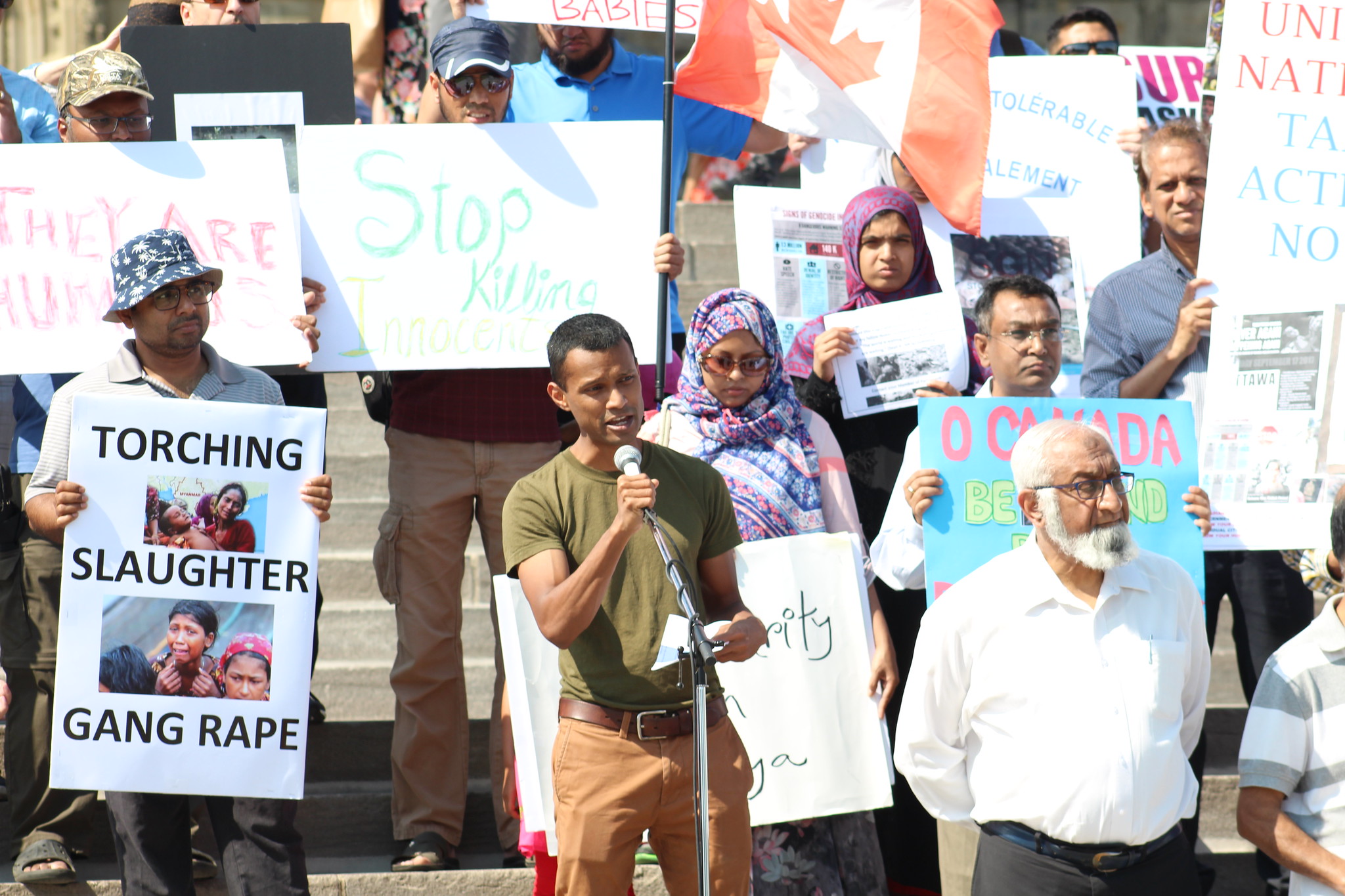
Facebook’s move toward deeming “Zionist” as potential hate speech thus raises serious questions over its larger potential impact — not only in deciding what Palestinians and their allies can say on the social media platform itself, but in setting a precedent for how a social media platform can shape what is and isn’t acceptable to say about a controversial political topic.
“The debate around the term ‘Zionist’ exemplifies why decisions about what constitutes hate speech are so difficult,” said Jillian C. York, director for international freedom of expression at the Electronic Frontier Foundation, a leading digital civil liberties group.
“It’s a term that carries different meaning to whomever says it,” she continued. ”Those who use it to self-describe see it as part of their core identity, while Palestinians — on the receiving end of Zionist occupation — rightfully feel differently… and still others, on the outside of the conflict, may use it to describe political identity or in ways that are anti-Semitic. Ultimately, it demonstrates the subjectivity of expression, and why censorship should, if anything, only be a last resort.”

